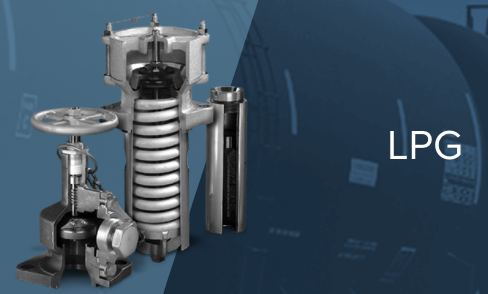
There are inherent risks that must be analyzed and mitigated when transporting liquefied petroleum gas, or LPG, via railcar. Perhaps the most “noteworthy” or “fear-inducing” risk in transporting LPG is the potential for deadly fires and explosions that can result during an accident or non-accidental release (NAR) incident that includes a breach in product containment.
The hazardous consequences that can result from a loss of LPG containment include pool fires, jet fires, vapor-cloud flash fires and vapor-cloud explosions. Considering that a typical pressurized railcar carries as much as 30,000 gallons of LPG, and that a unit train can feature 100 or more of these vessels, any accident has potential to be catastrophic.
Thankfully, the number of accidents involving LPG-laden railcars is exceedingly rare – and continues to decline on an annual basis. However, because a rail accident may loom around the next bend in the tracks, Midland Manufacturing is committed to delivering the safest and most reliable railcar accessories that have been designed to optimize performance in LPG-transporting applications.
Midland’s product offering in this realm includes:
- Pressure Relief Valves: Midland PRVs are available in interior and exterior body designs, both of which offer reliability and flexibility for use in every Department of Transportation (DOT) pressure rating from 225 to 495 psig (15.5 to 34 bar) and at flow rates up to 49,912 standard cubic feet per minute (scfm).
- Angle Valves: Midland angle valves are available in 1-, 2- and 3-inch sizes, all of which feature the lowest number of potential leak paths, which are assured via triple seals and bubble-testing. The elevated seat design also permits self-draining to mitigate against product becoming trapped or released accidentally.
- Check Valves: Designed to provide flow rates up to 37,000 pounds per hour and to prevent a damage-causing inadvertent closure. Should the valve “check” because of an excess-flow condition, a built-in pressure bypass enables rapid reopening and continued operation after the cause is corrected.
- Needle Valves: These components allow sampling of the railcar lading without the need to open a larger transfer valve, though they must be installed with a check valve on the tank side to prevent product loss if the valve nipple is accidentally sheared off.
- Thermowells: Midland thermowells, which are available in threaded or flanged configurations, provide safe non-contact access to the lading for temperature measurement via a thermometer or thermocouple probe.
- Gauging Devices: Superior construction via graphic rods, a stainless-steel specific gravity nut and cap and zinc-plated body/flange result in a gauging device that is accurate, corrosion-free and offers long-life service. The lightweight float also delivers excellent performance with low specific-gravity commodities like LPG.
- Manway Covers: With more than 80 available designs in insulated or non-insulated versions made from AAR-approved materials, Midland manway covers can meet the unique and specific needs of every transport application.
- Lift Assisters: Engineered for versatility, durability and ease of use with insulated and non-insulated manway covers, with lifting assistance for up to 88 pounds. Powder-coated springs prevent corrosion while the unique low-profile design won’t damage loading/unloading facilities or catch on operator clothing.
For more information on Midland Manufacturing and its complete portfolio of railcar equipment for the safe, reliable and efficient transport of LPG, please visit midlandmfg.com.